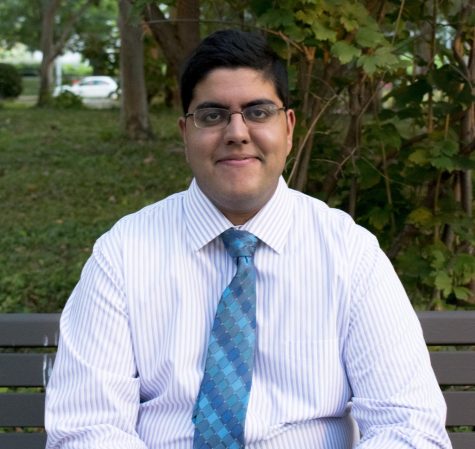Fourth-year researcher leaves legacy of research with MRI, PTSD projects
November 15, 2013
Senior researcher Srijita Sarkar is going to be graduating this school year, but she’s leaving a legacy of research here at Case Western Reserve University.
The biochemistry and psychology double major spent the last two years working on a research project that aimed to test software that will allow patients to breathe while taking a magnetic resonance imaging (MRI) scan.
Currently, patients have to hold their breath during the entirety of a MRI scan. The difficulty of the task not only makes scans uncomfortable, but many patients, mostly children, can’t be approved to use the diagnostic technique scan due to this limitation.
The new software will clean up blurry images caused by the movement of the chest when patients breathe. Dr. Nicole Seiberlich, an assistant professor in the Department of Biomedical Engineering, had already developed the software. Sarkar worked with the program when it was being tested on MRI scans from volunteers. Her job included using the computer program MATLAB to follow through and recreate the images. She was also tasked with soothing volunteers during the MRI scans.
The research team put up fliers to recruit students on campus for the study.
“Students, here will do a lot for money. I’ve even participated in research studies,” she said.
Over the summer of her sophomore year, and for two years after that, Sarkar was always ready to go to University Hospitals from 9 a.m. to 5 p.m. Whenever a scan was happening, she would be called over to help.
During her junior year, Sarkar started working on psychiatric research, an area she’s more interested in. Currently, she works in the W.O Walker Center, a psychiatry building shared by the Cleveland Clinic and University Hospitals. She’s trying to isolate a gene related to a predisposition for post traumatic stress disorder.
Post traumatic stress disorder (PTSD) is an anxiety disorder that results from physical harm or the threat of physical harm. In order to conduct the study, the research group has to obtain blood samples from patients with PTSD. Finding volunteers for this study was a lot more difficult than her previous one, because the volunteers had to have been diagnosed with PTSD before.
“Whether or not you’re predisposed to PTSD, you will have to go through a stressful event before it can manifest,” she explained.
Because of this, many of her volunteers have been veterans. The process starts with a screening in which the research group confirms the volunteer truly has the disorder. Sarkar then takes them downstairs to the blood-sampling lab, and after a nurse takes the sample, she brings it back up to a storage freezer.
She said, “Currently, we’re still waiting to platelet the blood. We have them stored in the freezer.”
In addition to this, Sakar’s job is to compose a meta-analysis on the PTSD, which involves summarizing all research done thus far on the disorder. She’s been working on the project for a majority of this year now.
When she wasn’t doing research over the summer, Sakar worked at the Rainbow Call Center at University Hospitals. She answers calls from parents whose children were recently hospitalized as to whether the parents should seek an appointment or take their children to the emergency room.
As for when she leaves the university, Sakar plans to take a gap year before going on to medical school. She hopes to travel to India and spend time working there. Having lived in southern California for a large amount of time, she hopes the weather in Asia will be nice, certainly better than that in Cleveland.


